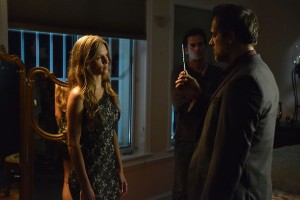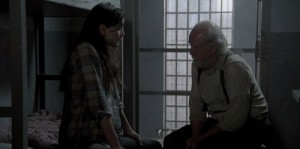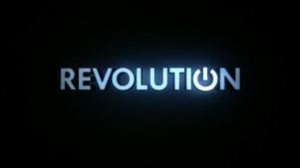“No, it’s you AND me. And we’re going to blow up that train.”
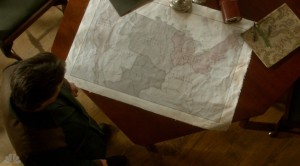
Even post-Blackout, no one wants a piece of Canada.
I don’t like the idea of comparing this show to Lost. Mostly because I don’t think it actually competes but also because I don’t believe it’s an apples to apples comparison. They share many of the same traits (mystery for which answers are provided in small tastes, adventuring without the benefit of modern conveniences, castmembers that look really good in tight shirts) but Revolution feels, somehow, much more straightforward. Maybe because we know upfront that the answer isn’t magic.
It’s not necessarily a bad thing for the show to be more straightforward in terms of learning curve. Lost‘s complicated story, with its myriad offshoots and complexities, creating diminishing returns when people would hear the hype and try to jump in. If only they’d thought of putting the series on Netflix like they did with Breaking Bad. But, with Revolution, we have a short introduction in the beginning of every episode that contains all you really need to know about the show to continue.
Sure, Lost had a Previously On but, from how many people still today ask “What was up with the polar bear?” (despite the answer coming in Season 3), we have a bit of disconnect between the important events for an episode and seasons of mythology. Revolution may be new but, as long as it’s contained in this box, it might actually learn from the mistakes of the learning curve that Lost suffered in the ratings.
Now, if they could only get me to care about the concerns of these characters.
Read more »
 First, apologies for no review for “Waiting for the Knock” from last week. Between paid writing and trying not to get sick (and then actually getting sick), I just didn’t have the opportunity to write about the episode. Here’s a micro-review: Clarke is the most awesome to ever awesome, Cary’s hoodie was hawt, and if Dylan had hung onto Lemond any longer, I would’ve been sniffling about a drug dealer and his son. Also: Two folks from The Wire stopped by, again, so that was cool. Also also: Cary’s hoodie, guys.
First, apologies for no review for “Waiting for the Knock” from last week. Between paid writing and trying not to get sick (and then actually getting sick), I just didn’t have the opportunity to write about the episode. Here’s a micro-review: Clarke is the most awesome to ever awesome, Cary’s hoodie was hawt, and if Dylan had hung onto Lemond any longer, I would’ve been sniffling about a drug dealer and his son. Also: Two folks from The Wire stopped by, again, so that was cool. Also also: Cary’s hoodie, guys.

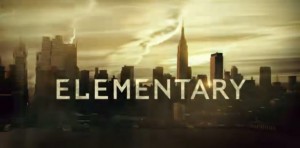 Just as there are many different ways to tell a story, there are many different ways to develop characters. You can begin at a life-changing moment, or right after it. You can start with the end result – be it the final stretch of life or the place a character ends up after their long journey of development – or you can make that your final destination and make how the character got there the focus.
Just as there are many different ways to tell a story, there are many different ways to develop characters. You can begin at a life-changing moment, or right after it. You can start with the end result – be it the final stretch of life or the place a character ends up after their long journey of development – or you can make that your final destination and make how the character got there the focus.